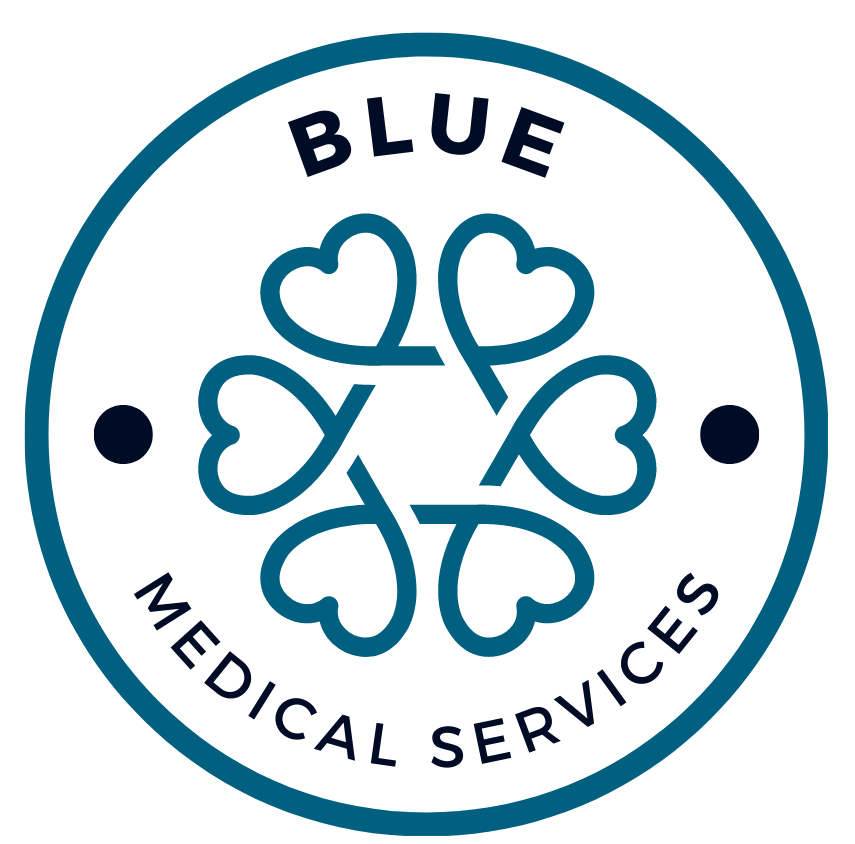Heart palpitations can be a disconcerting sensation, leaving you with feelings of a pounding, fluttering, skipped beats, or even flips in your chest. When these palpitations occur at night, they generally pose no immediate danger. Numerous factors can contribute to their occurrence, including alcohol, caffeine, nicotine, stress, or hormonal imbalances. However, in less common cases, they may stem from an underlying health condition such as heart disease or a thyroid disorder.

Overview
Heart palpitations at night often manifest as a heightened awareness of your heart’s activity, characterized by a pounding, racing, or accelerated rhythm. It may also feel as though your heart skips beats or you experience extra heartbeats. These palpitations draw attention to your heart rate, and you may feel the pulsations in your chest, neck, or throat.
Heart palpitations can arise at any time, including during nighttime sleep or periods of rest during the day. While they can be distressing, it’s important to note that they are typically not life-threatening. Many individuals experience similar heart palpitations during the day but may fail to notice them due to the distractions of their daily activities. However, it is crucial to recognize that heart palpitations at night can occasionally serve as warning signs of a more serious underlying health condition, such as an abnormal heart rhythm known as arrhythmia. If you frequently experience a racing heart sensation when lying down, it is advisable to seek medical attention for a comprehensive examination. Additionally, if your palpitations are accompanied by breathing difficulties or chest pain, it is imperative to seek immediate medical assistance.
Prevalence
Heart palpitations are exceedingly common and affect a large number of individuals throughout the day. However, these palpitations are more likely to be noticed when one is in a state of relaxation or lying down, as there are fewer external distractions diverting attention away from these sensations.
Causes
Heart palpitations at night can be triggered by various factors, and the symptoms experienced may include:
- Fluttering: Some individuals describe a sensation akin to flapping or fluttering in the chest, as if their heart is performing somersaults.
- Irregular heart rate: It may feel as though the heart is beating irregularly, skipping beats, or fluctuating between rapid and slow rhythms. In some instances, the heart may even appear to pause momentarily.
- Pounding: People may perceive their heartbeats as forceful and might even hear the sound of their own heartbeat in their ears.
The causes of heart palpitations at night are diverse. In most cases, they are benign and do not arise from underlying health issues. They occur when the heart exhibits irregular rhythms or contracts prematurely. These occurrences are often referred to as premature ventricular contractions (PVC) or premature atrial contractions (PAC). It is worth noting that while these events are common and experienced by nearly everyone, not everyone is able to perceive them.
What causes heart palpitations at night?
Heart palpitations at night can be attributed to various causes. Typically, these palpitations are benign and not indicative of an underlying health problem. They occur when the heart beats irregularly or experiences premature contractions, known as premature ventricular contractions (PVC) or premature atrial contractions (PAC). It’s important to note that PVCs or PACs are experienced by almost everyone occasionally, but not everyone is aware of them.
Certain sleeping positions can contribute to heart palpitations at night. For instance, lying in a hunched-over position on one’s side can create internal pressure, leading to palpitations. Additionally, there are several other common triggers for heart palpitations, including anxiety, stress, and depression, which often manifest during panic attacks. Dehydration and electrolyte imbalances, as well as the consumption of certain substances like diet pills, nasal decongestants containing pseudoephedrine, and nicotine, can also cause palpitations.
Factors such as excess weight and obesity, fever, hormonal changes during menopause or pregnancy, and the intake of certain foods and drinks such as alcohol, caffeine, and chocolate, which are high in carbohydrates, sodium, sugar, or fat, can contribute to heart palpitations as well. However, it’s important to note that less frequently, heart palpitations can be indicative of underlying health conditions, including anemia, heart disease (such as heart attack, heart failure, or cardiomyopathy), arrhythmias (such as atrial fibrillation, tachycardia, or bradycardia), hypotension or hypoglycemia, metabolic syndrome, myocarditis (inflammation of the heart muscles due to viral infection), thyroid problems (such as hyperthyroidism), or structural issues in the heart (including valve disease).
Diagnosis And Tests
When it comes to diagnosing heart palpitations that occur at night, healthcare providers employ various methods. Firstly, they will inquire about your symptoms and perform a thorough examination of your heart. Additionally, they may recommend a blood test such as a complete blood count (CBC) to assess for conditions like anemia or infection. This test can also identify signs of vitamin deficiencies or thyroid issues.
To monitor your heart rate and detect any irregularities, an electrocardiogram (EKG or ECG) may be conducted. During this test, electrodes are placed on your skin to measure your heart’s electrical activity. It usually takes around 15 minutes, and you may be asked to lie down. However, it is important to note that palpitations may not always occur during the EKG. In such cases, your healthcare provider might suggest an ambulatory electrocardiogram, such as a Holter monitor. This portable device is worn for up to a week while you engage in your daily activities. It continuously records your heart rate and captures any irregular heartbeats, providing valuable information for your provider’s evaluation.
Management And Treatment
To effectively manage heart palpitations that occur at night, there are several strategies you can employ. In most cases, occasional nighttime heart palpitations do not require treatment, but you can try self-help techniques to alleviate the symptoms. If you find your heart racing at night, consider the following approaches:
- Deep breathing: Practice pursed lip breathing techniques, which involve taking long, deep breaths. Additionally, meditation and other relaxation techniques can help reduce stress levels, potentially alleviating heart palpitations.
- Hydration: Ensure you drink an adequate amount of water, as dehydration can strain the heart and contribute to palpitations.
- Change of position: Sometimes, simply changing your position can provide relief from heart palpitations. Try rolling over in bed, sitting up, or taking a short walk while focusing on deep breathing.
If an underlying health condition is causing the palpitations, it is important to address the root cause. Treatment options vary depending on the specific condition. In some cases, healthcare providers may prescribe beta-blocker medications, which work by slowing down the heart rate and reducing palpitations.
Prevention
While it may not be possible to completely prevent heart palpitations at night, there are steps you can take to reduce your risk. Consider the following preventive measures:
- Limit alcohol and caffeine intake, particularly before bedtime. If you are a smoker, discuss a plan to quit smoking with your healthcare provider.
- Avoid consuming large meals, especially those high in fat, carbohydrates, salt, or sugar, right before going to bed.
- Seek treatment for anxiety or depression. Consult your provider about potential antidepressant medications and therapy options.
- Implement daily stress-reduction techniques. Engage in activities such as meditation, yoga, diaphragmatic breathing, or other relaxation techniques to minimize stress levels.
- Maintain a healthy weight. If you are overweight or have obesity, consult your healthcare provider to develop a weight loss plan tailored to your needs.
By adopting these preventive measures, you can lower your risk of experiencing heart palpitations at night and promote overall heart health. Remember to consult with your healthcare provider for personalized guidance and recommendations.
Living With
Recognizing when it’s necessary to consult your healthcare provider regarding heart palpitations at night is crucial. While most nighttime heart palpitations are harmless, it’s essential to seek medical attention to rule out any underlying serious health conditions. Schedule a visit with your provider if you experience frequent heart palpitations while resting or lying down.
Immediate medical attention is warranted if you experience heart palpitations accompanied by any of the following symptoms:
- Chest pain or discomfort.
- Difficulty breathing, shortness of breath, or other breathing difficulties.
- Dizziness or confusion.
- Loss of consciousness or fainting (syncope).
- Severe swelling (edema) in your limbs, particularly in your legs, ankles, and feet.
- Unusual or sudden fatigue.
- Your fitness device alerts you to a heart rate exceeding 100 beats per minute.
A note from the writer.
If you frequently experience heart palpitations at night, it is advisable to discuss the matter with your healthcare provider. While most heart palpitations are not inherently dangerous, seeking an evaluation can provide reassurance and ensure your well-being. To lower the risk of heart palpitations at night, consider maintaining a balanced diet, abstaining from alcohol and nicotine, and avoiding caffeine before bedtime. Engaging in activities such as yoga and meditation can help reduce stress levels and promote relaxation. Remember, if heart palpitations occur simultaneously with chest pain, dizziness, or shortness of breath, seek immediate medical assistance.
